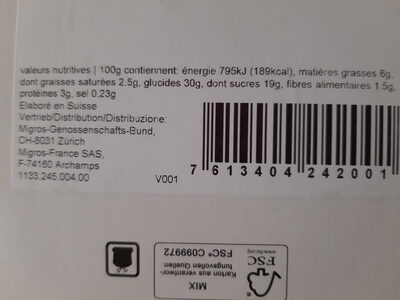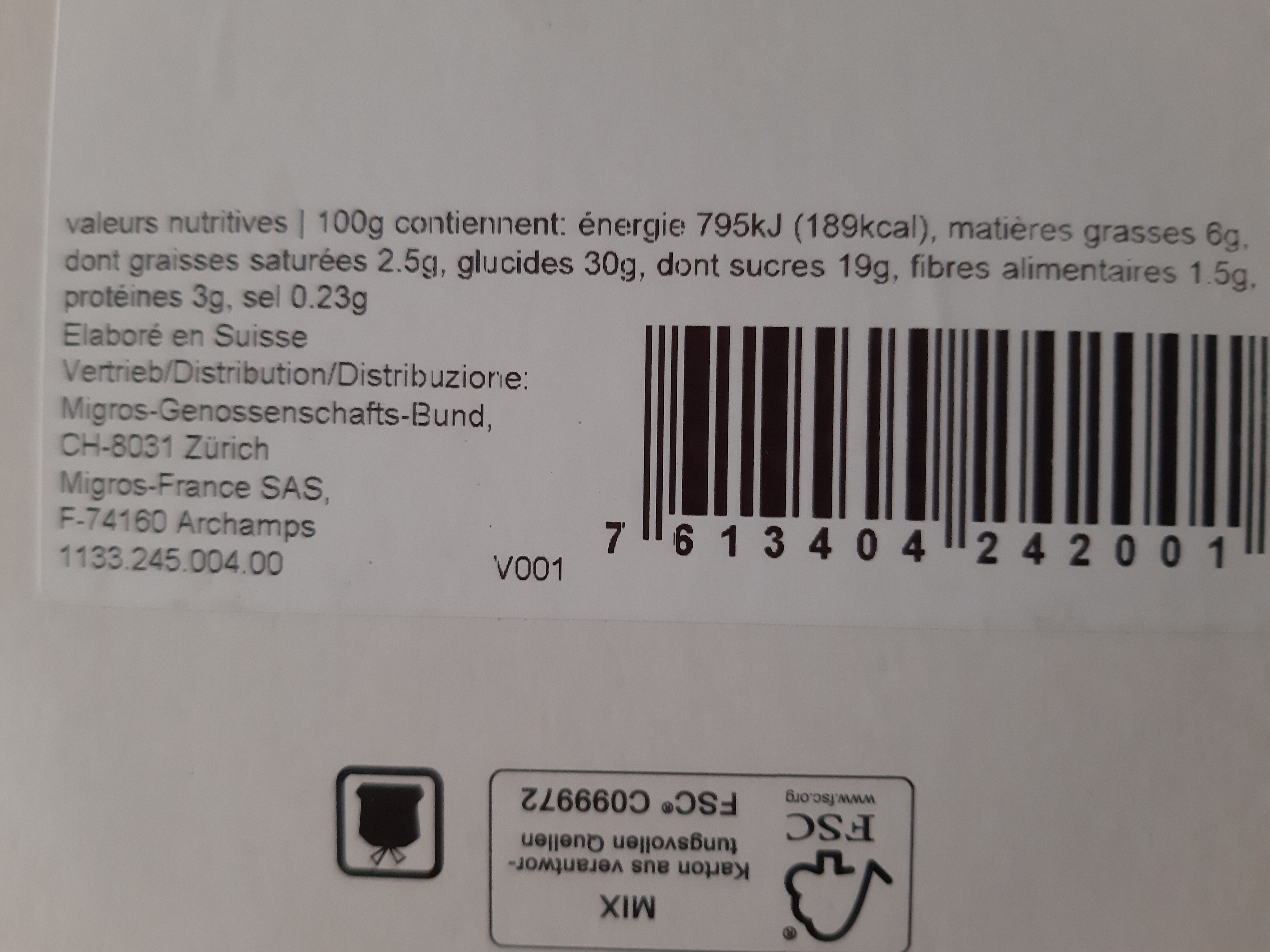tourte aux fraises - Migros - 550gr
This product page is not complete. You can help to complete it by editing it and adding more data from the photos we have, or by taking more photos using the app for Android or iPhone/iPad. Thank you!
×
Barcode: 7613404242001 (EAN / EAN-13)
Quantity: 550gr
Brands: Migros
Categories: Snacks, Sweet snacks, Biscuits and cakes, Cakes, Pies, Two-crust Pies
Origin of ingredients: Switzerland
Manufacturing or processing places: Zürich
Traceability code: FSC-C099972
Link to the product page on the official site of the producer: http://www.migros.ch
Stores: Migros
Countries where sold: Switzerland
Matching with your preferences
Environment
Packaging
Transportation
Threatened species
Report a problem
Data sources
Product added on by openfoodfacts-contributors
Last edit of product page on by roboto-app.
Product page also edited by itsjustruby, off.dc80236d-2435-4c94-9797-85ec7ff4dc74, packbot.











